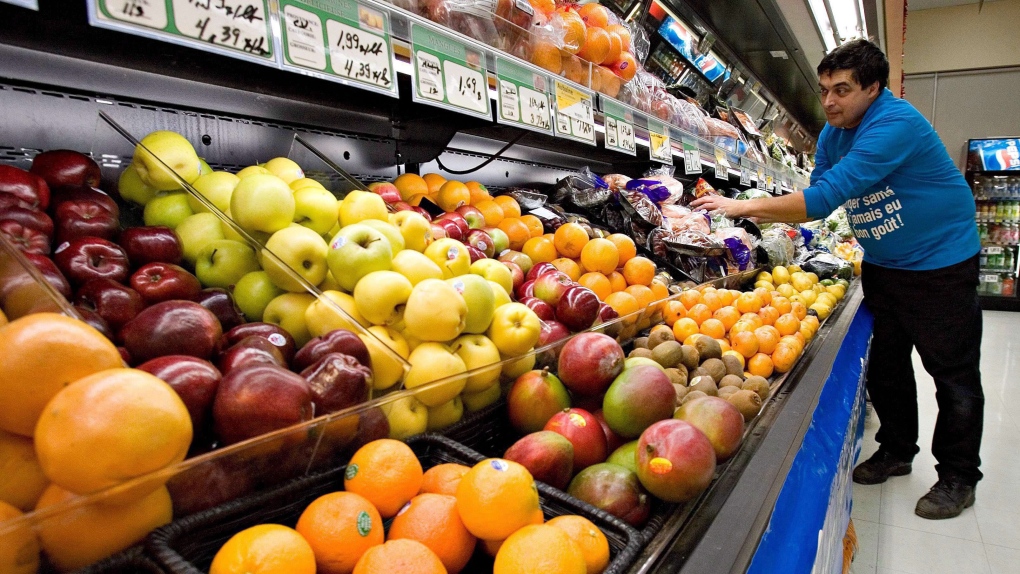TLDR; climate change, Russia, supply chain not recovered, labor shortages; more price increases expected :/
This is such a dumb headline.
The rate of price increases slowing doesn't mean that prices go down. It means that prices increase more slowly.
ETA: we aren't experiencing deflation. And we probably don't want to.
doesn’t mean that prices go down
But, to be fair, they are going down. The price I can get as the farmer is 30-50% of what it was last year.
You're still paying more at the grocery store because what you are eating now, I sold you last year (maybe even the year before). Turns out people don't like surprises when it comes to food, and want to ensure that we grow enough to feed them, so they generally buy it years in advance.
Your price might go down, but that's because you have the least amount of leverage. Same applies to customers, and to any smaller entity in the supply chain.
I'd also note the LCL, Empire and Metro didn't hesitate to push on supplier increases, but also didn't hesitate to raise resale at the same time. Most of them are seeing increased margins and they're all seeing higher profit, which, if we had a fair tax structure, wouldn't happen.
I work in distribution. Other than select contract negotiations at very high volumes, I can't think of the last time I saw a price decrease go through, though I will say our fuel surcharge at least isn't going up. So the rate of increase is slowing, but resale prices, by and large, are not going down. At best, this is the "new normal"
No matter what the inflation rate prices will not go down, for prices to go down you need deflation which is not likely to happen. Prices will always go up, it's just the speed of which they go up that changes.
We saw deflation as recently as 2020. Prices do not always go up.
Moreover, every single high inflationary period in history, save one time, has seen deflation occur soon after. Why do you think this will be the second outlier, especially when the driving forces are closer to every other time and quite unlike that one unique time?
A more helpful question is to ask why prices are increasing when Loblaws and company have been making record profits since 2020.
I mean, I know why, but
For those who don't know why:
To preface, there are two sides to every transaction: Something being offered, and something being traded in kind. Exchanging parties must feel that both sides of the transaction are of equal value in order to see a transaction carried out. The unit of measure used to determine where that equalization point is found is known as price.
On one side of the transaction, the value of what is being offered had been declining in value at a rate not seen in a long time. This means that it takes more of that thing to equalize the other side of the transaction. COVID factors has lead people to not see this thing as being as valuable as they once did. While that decline has pretty much settled down now, it does partially explain why prices have risen up to this point.
On the other side of the transaction, the value of what is being offered has been increasing in value at a rate not seen in a long time. This means that it takes less of that thing to equalize the other side of the transaction. The Ukrainian conflict suggesting that famine is a real possibility has reminded people that they shouldn't take this thing for granted, and as such they now consider it more valuable. This explains the remainder of the price growth.
As a farmer we haven't even seen the beginning of food inflation. The entire country and much of the world is in drought, and we're only entering this El Nino cycle.
I sold all my animals and my crops are a wash. Drought has crushed yields over a vast area of Canada's agricultural land. Combining the other factors at play such as war between two massive grain producers, there's a chance that global food demand could actually outstrip production this year, for the first time since the start of the Green Revolution.
With that said, processors and middlemen are definitely grabbing the large portion of the increased value of food at the stores. Cattle prices are up but nowhere near the extent that beef has risen, and will soon plummet as animals are dumped on the market for lack of feed. What won't plummet is the consumer price of beef, I can almost guarantee it. And I shudder to think of what grain and bread prices could be by the end of this year. Very glad to have a freezer of meat, huge garden, a good wheat grinder and bins of grain that would last my family decades.
we’re only entering this El Nino cycle.
El Niño typically brings rain. In fact, as you know being a farmer, several weeks ago there was drought panic in the market – but with that cycle starting to set in the rains finally came and the prices came tumbling down again thereafter.
Commodity prices are 30-50% of what they were last year. The grocer price remains high only because it takes a while to work through the system. Next year things will look quite a bit different.
Drought has crushed yields over a vast area of Canada’s agricultural land.
We've mostly recovered here in Ontario, but true that things don't look so great in the west. However, the markets aren't terribly concerned. Wheat, for example, is down 10% in just a couple of weeks. Canada isn't that significant of a producer in the grand scheme of things, really.
What won’t plummet is the consumer price of beef, I can almost guarantee it.
Well, it is certainly volatile right now. The dumping is visible as you can see beef being sold for half the price of the day before if you go to the store at the right time, and then it jumps back up soon thereafter. But, overall, beef lags corn. It will take several years to work its way through the system, just like in 2013. Eventually it will return. It always does. We've been here a million times before.
And I shudder to think of what grain and bread prices could be by the end of this year.
All us farmers would love to go back to last year's market, I'm sure. But for the consumer, the rains came at just the right time in the most important places, so things are going to almost certainly going to become cheaper still.
The cure for high prices is high prices.
The person you're replying to is a very interesting person indeed. They're a farmer, an electrician and looks like a fairly knowledgeable, low level programmer as well.
The amount of things you need to be able to do as a farmer would astound everyone that thinks farmers are yokels. Run a multi-million dollar business and you need to learn things, who knew?
Not to mention that, save the guilded few who had the farm given to them, one needs a lucrative career to fund their farming habit, so you're going to find a lot of farmers who also work as electricians, programmers, doctors, lawyers, etc.
the prices came tumbling down again thereafter.
Not from what I've seen. Canola hit another spike a couple weeks ago pulled up by the general veg oil complex, we sold a few loads then, there is some of the usual seasonal drop heading into harvest now. Canola is also driven by demand from crush plants coming online across Canada. Barley and oats are doing well too, accounting for harvest pressure. Which does mean beef will generally stay up based on feed prices that seem baked in for a while.
With that said, processors and middlemen are definitely grabbing the large portion of the increased value of food at the stores
They always have. But the difference between the farm gate price and the store shelf price has got even wider in the last few years.
It's one of the main reasons why my brother and I didn't take over the family farm when it was an option.
because groceries price increases were because of companies getting rich, and not inflation.
/story
Economists say there are a number of factors driving up food prices
GREED. The answer we were looking for is greed. Thanks for playing.
Inflation is not prices, it's a rate of increase of prices. Even if Inflation is at 0%, prices won't decrease, 0% mean prices stability. To see prices diminish, Inflation would need to be negative, in that case it's depression.
Inflation is not prices, it’s a rate of increase of prices.
Inflation attempts to measure the decreasing value the of currency as observed over time. The change in price across a certain basket of goods is the proxy used to determine that.
Even if Inflation is at 0%, prices won’t decrease
All else equal, a decline in value of the currency means that price will rise. However, there are two sides to every transaction. The thing on the other side may also decrease in value. If that other thing decreases in value faster than the currency, then it is possible for inflation to be >=0% and for the price to still fall.
Because retailers took advantage of inflation to push profits even higher, especially one specific retailer who has a vertical monopoly in the grocery sector, of which they’ve been caught and convicted of using to fix the prices of bread in the past.
They’re still high because food is a staple, a necessity. Competition can’t spin up in several months. And competition certainly can’t compete with this existing farm to grocer system.
These prices are never coming down. They’d keep going higher if people weren’t so angry they were stealing instead.
The best protest is to not shop there.
I know. Sounds stupid.
Farmers stands. Farm to table markets. Farmer’s markets.
Call farms and see if you can place orders. They need larger orders? Start ordering with friends, neighbours, family.
This stuff is grown in our backyard, and we are paying for some guy to buy it to sell to some other guy for a huge mark up so we can pay even more for no reason.
https://beta.ctvnews.ca/national/business/2023/4/5/1_6344721.amp.html
Tale as old as time. Prices go up. CEO pay goes up. Wages go down. It's a real head scratcher.
And a tale that has been told throughout the ages, yet, despite that, Canadians still somehow think they need to go to university and get a job instead of using that capital to become the CEO of their own company. It is a real head scratcher, indeed.
All of those reasons are BS if grocery stores are still posting record profits.
Edit: grammar









